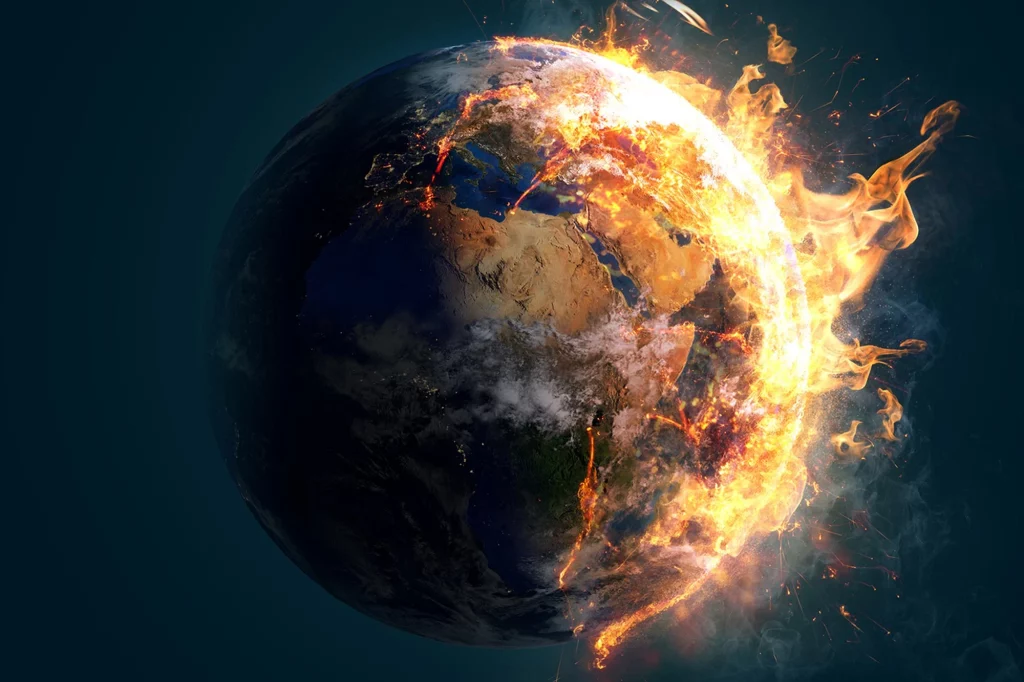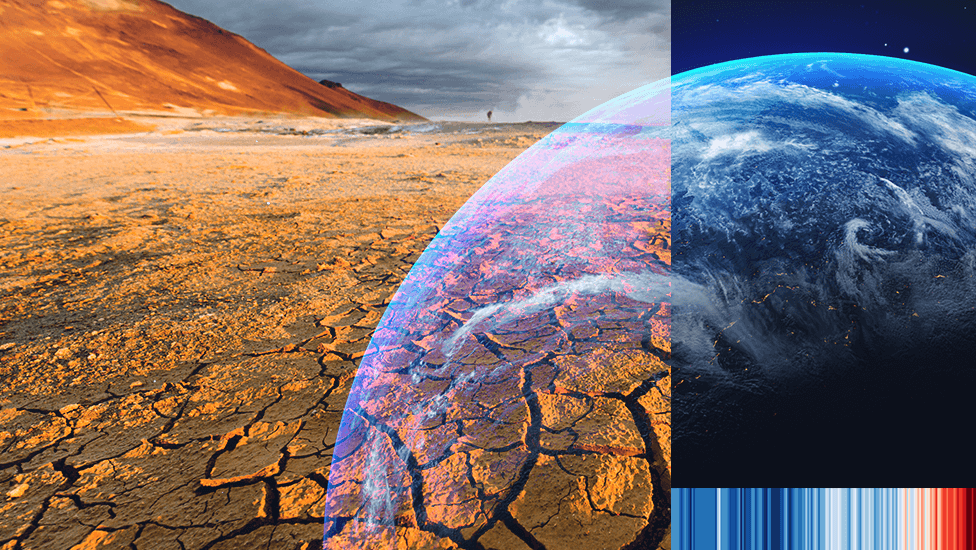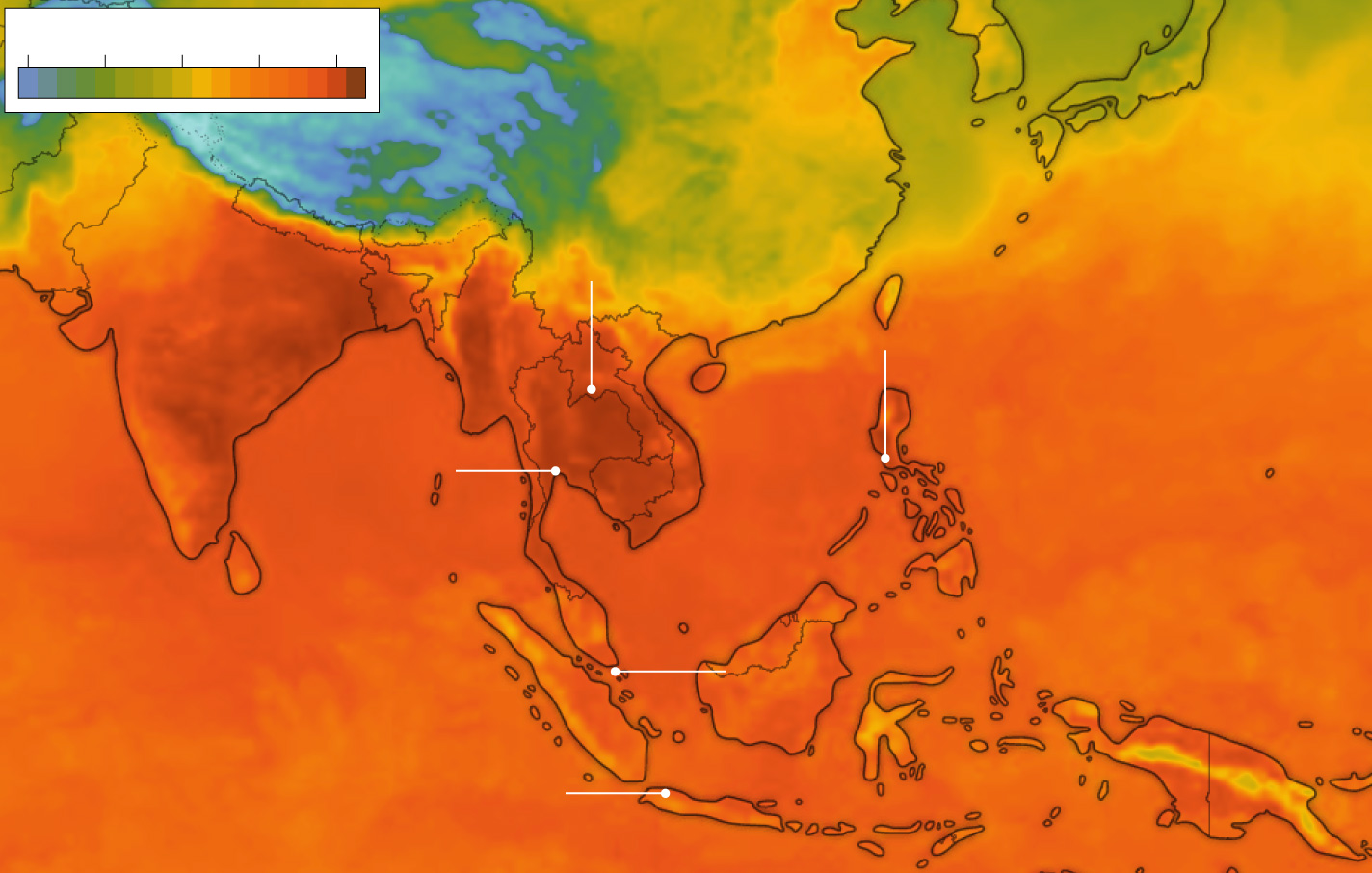
How the Earth’s climate future changed due to extreme heat: if not for one ‘but’
Scientists believe that all climate disasters on the planet are caused solely by the presence of humans.
Earth’s history spans more than 4.5 billion years, and our planet has never been closer to “climate collapse.” Climate change has caused the Earth to effectively enter a “heatwave,” causing extreme temperatures, droughts and floods, Science Alert reports.
Climate Apocalypse: Impact of Global Warming on Unprecedented Heat in Southern Europe and Northern Africa
Climatologists say the excruciating heat wave recorded in the Mediterranean in July 2024 would be “almost unthinkable” in the absence of global warming.
Data suggests a new searing heat wave has hit southern Europe and northern Africa, with temperatures exceeding 40 degrees Celsius. The researchers also note that such periods of extreme heat are becoming more common in the global climate.
Extreme heat has reportedly killed more than twenty people in Morocco in a single day, ignited wildfires in Greece and the Balkans, and created difficult conditions for athletes at the 2024 Summer Olympics in Paris.
World Weather Attribution is an alliance of scientists who are innovators in applying peer-reviewed methodologies to assess the impact of climate change on specific extreme events. Scientists now claim that temperatures on Earth have reached levels that would have been unattainable without human influence, particularly the burning of fossil fuels.
Scientists came to this conclusion by examining average July temperatures and focusing on a region covering Morocco, Portugal, Spain, France, Greece and Italy. The researchers used climate data to estimate how the heatwave of July 2024 compares to similar periods in the past, before humanity began burning oil, coal and gas.

The results show that temperatures recorded in Europe were 3.3°C higher due to climate change. Outside the Mediterranean, observations indicate intense heat has also hit Paris this week, where Olympic athletes have struggled due to extreme temperatures.
According to Friederike Otto, a climate scientist at Imperial College London and co-author of the study, extreme heat in July is no longer an exception on Earth. In fact, scientists predict that such extreme temperature anomalies can be expected about once every decade.
Scientists have previously found that climate change is leading to extreme weather conditions by increasing the duration, intensity and frequency of heat waves. However, the recent heat wave has raised temperatures to record levels unparalleled on record. In July 2024, scientists recorded the four hottest days in the history of meteorological measurements.
How to Stop Global Warming: Concrete Steps for Global Change

Global warming is one of the greatest threats to our planet and requires comprehensive and decisive action to overcome it. Here are some key steps you can take to combat this phenomenon:
- Transition to renewable energy sources
One of the main sources of carbon emissions is the burning of fossil fuels. Switching to renewable energy sources such as solar, wind and hydroelectric power will help significantly reduce CO₂ levels in the atmosphere. Developing energy storage technologies and improving their availability also play a key role. - Increasing energy efficiency
Energy-efficient technologies and equipment can reduce energy consumption and reduce emissions. The introduction of modern standards in construction, transport and manufacturing, as well as the development of smart networks and devices will help optimize the use of resources. - Reducing agricultural emissions
Agriculture is a significant source of methane and other greenhouse gasses. Shifting to sustainable farming practices, such as intermittent grazing and the use of organic fertilizers, can help reduce emissions. - Sustainable forestry and reforestation
Forests play an important role in carbon sequestration. Protecting existing forests and restoring deforested areas can significantly reduce CO₂ levels in the atmosphere. Supporting ecosystem restoration programs and combating deforestation is key. - Changing consumer habits
Personal behavior also contributes to global warming. Reducing your meat consumption, reducing waste and switching to sustainable products helps reduce your carbon footprint. Education and public awareness are helping to change habits at the consumer level. - The international cooperation
The global nature of the problem requires concerted action at the international level. The adoption and implementation of international agreements, such as the Paris Agreement, and support for developing countries in the fight against climate change are important aspects of the global strategy. - Innovation and Research
Investment in research and development of new technologies can provide new solutions to combat global warming. Developing carbon capture methods and sustainable technologies can help reduce climate impacts.
These steps require a joint effort from governments, businesses and individuals. Only a comprehensive approach and long-term changes at all levels can help stop global warming and preserve the planet for future generations.